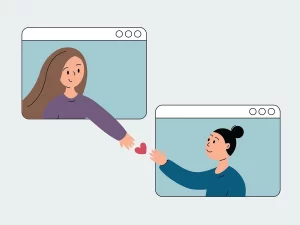 Loneliness is a universal human emotion that can be experienced by anyone, regardless of age, gender or social status. It is defined as a subjective feeling of isolation and disconnectedness from others, which can result from a lack of social relationships, emotional support, or meaningful interactions. While it’s a common experience, it is often overlooked or dismissed as a trivial issue. However, research has shown that loneliness can have significant harmful effects on both – the body and mind. It is essential to understand these effects and learn how to deal with loneliness.
Loneliness is a universal human emotion that can be experienced by anyone, regardless of age, gender or social status. It is defined as a subjective feeling of isolation and disconnectedness from others, which can result from a lack of social relationships, emotional support, or meaningful interactions. While it’s a common experience, it is often overlooked or dismissed as a trivial issue. However, research has shown that loneliness can have significant harmful effects on both – the body and mind. It is essential to understand these effects and learn how to deal with loneliness.
Coping with loneliness can be a challenging task, particularly for individuals who struggle to form meaningful relationships or lack social support. However, there are several strategies that can help alleviate feelings of loneliness and improve overall well-being.
Why is Loneliness Harmful?
Loneliness can have a significant impact on our mental and physical health. Chronic loneliness has been linked to a range of health problems, including depression, anxiety, cardiovascular disease, and even a weakened immune system. As per research, loneliness can increase the risk of premature death by as much as 26%. It is, therefore, essential to understand how loneliness affects our bodies and minds.
How Does Loneliness Impact Your Body and Mind?
Loneliness affects both our body and mind in several ways. The following are some common yet overlooked ways that loneliness can impact our health:
- Stress and Anxiety: can be caused by loneliness. This affects our physical and mental health. When we feel lonely, our bodies produce more stress hormones like cortisol, which lead to increased heart rate, blood pressure, and other physical symptoms of stress.
- Depression: Loneliness can lead to depression – a serious mental health condition that affects millions of people worldwide. When we feel lonely, we may experience feelings of sadness, hopelessness, and despair, which can lead to depression if left untreated.
- Cardiovascular Disease: Research has shown that loneliness can increase the risk of cardiovascular disease, including heart attack and stroke. Chronic loneliness can also lead to high blood pressure and other cardiovascular problems.
- Weakened Immune System: Loneliness weakens the immune system, making us more susceptible to illness and disease. When we feel lonely, our bodies produce fewer immune cells, which can make it harder for us to fight off infections and other health problems.
How Does Loneliness Affect the Brain?
Studies have shown that loneliness can lead to changes in the brain’s structure and function, particularly in areas related to emotional processing and social cognition.
Emotional Processing: When we feel lonely, our brains may become more sensitive to negative emotional stimuli, such as sad or angry faces. This makes us more prone to negative emotions and can contribute to the development of mood disorders, like depression and anxiety.
Social Cognition: Loneliness can also affect our ability to read social cues and interact with others. When we feel lonely, we may become more socially withdrawn and less able to understand and respond appropriately to social situations.
The Recent Impact of Covid-19 on Loneliness
The Covid-19 pandemic has led to a significant increase in loneliness worldwide. Lockdowns, social distancing, and other measures to control the spread of the virus have left many people feeling isolated and disconnected from their communities. According to a recent study, over 60% of Americans reported feeling lonely during the pandemic, and similar trends have been observed in other countries.
How To Cope With Loneliness: Loneliness can be a difficult and painful experience, but there are strategies and tips that can help you cope with it. Here are some suggestions:
Connect with others: Try connecting with people around you, whether it’s family, friends, or colleagues. Join a club or a social group that interests you or participate in activities that allow you to meet new people.
Volunteer: Volunteering can provide a sense of purpose and connection. Find a local charity or organization that resonates with you and start volunteering. It’s a great way to meet new people and give back to the community.
Practice self-care: Take care of yourself physically and mentally. This can include regular exercise, healthy eating, getting enough sleep, and practicing mindfulness or meditation.
Find meaning in activities: Engage in activities that give you a sense of accomplishment or joy, such as hobbies or creative pursuits.
Use technology to connect: Technology has made it easier than ever to connect with people around the world. Join online communities or use social media to connect with like-minded people.
Challenge negative thoughts: Loneliness can sometimes lead to negative thoughts about oneself. Challenge these thoughts by focusing on your strengths and positive aspects of your life.
Seek professional help: If your feelings of loneliness persist and interfere with your daily life, consider seeking help from a mental health professional.
Remember, that coping with loneliness takes time and effort. Be patient with yourself and keep trying different strategies until you find what works for you!
- Gift Yourself A Mental Detox On Navroz! - 15 March2025
- The Food And Mood Connect: Eating Your Way To A Healthier Mind - 1 March2025
- Beating The ‘Cascade Effect’ In 2025 - 28 December2024
